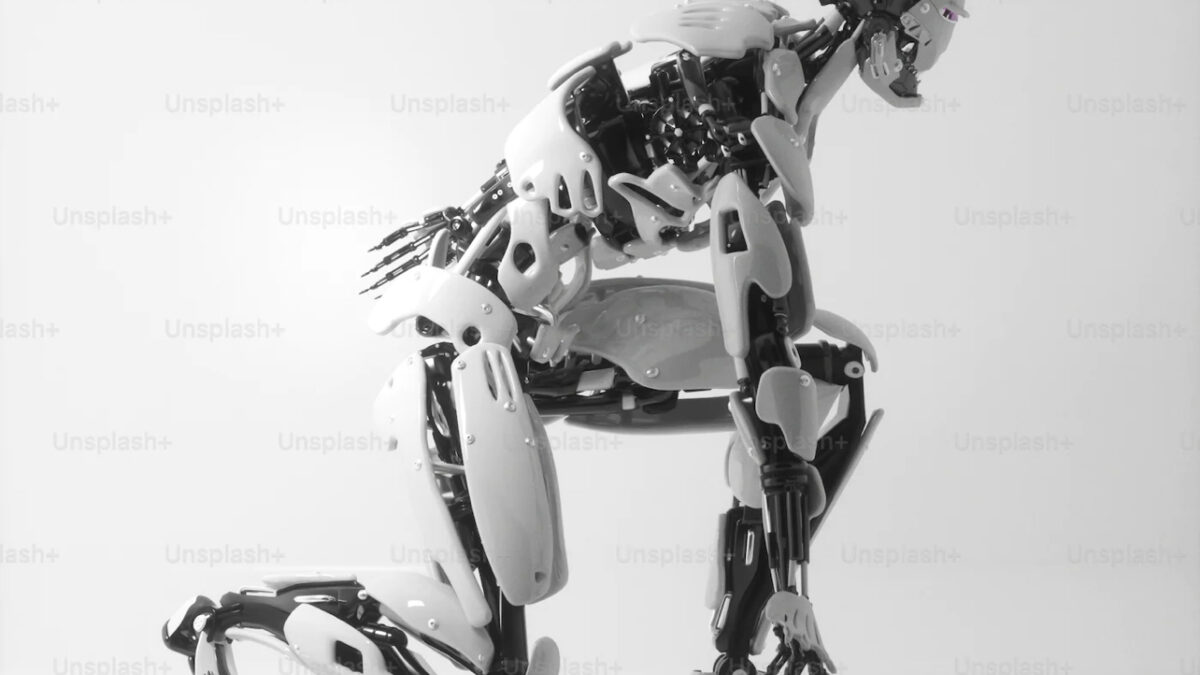The future is AI series: 3. What about my job?

By Fay Capstick
Last week we looked at whether Chatbot GPT, an AI, can code. This week we shall be taking this further by looking at the impact that AI might have on jobs. It feels like we are on the edge of a tidal wave of change and it is hard to predict the eventual outcome, but the rise of AI will have a huge impact on career choices going forward, and preparation is a good thing.
What has happened?
Since Chatbot GPT was unleashed on the world late last year people have taken notice of AI. Chatbot GPT represents a big advance in the capabilities of AI and how the public can interact with it. This coupled with AI that can produce deep fake videos and images means that there could be a huge impact on our lives and on the jobs market. This is particularly relevant to younger people starting in their careers or those considering a career change.
Side note: What can we learn from history?
AI is indeed a new invention but we can learn from history, and society had another huge shift during the industrial revolution. Initially, there were job losses, but overall employment opportunities increased due to the advent of steam power. People started working in factories, and increasing numbers of factories meant more jobs for factory workers and factory managers. It also caused a shift as people moved into cities to be nearer the new jobs. Most importantly, it created opportunities.
What might change?
As we have seen, the industrial revolution resulted in a shift with workers moving into cities. AI might see a reversal of this with people leaving the cities for the suburbs and countryside, as their jobs may no longer require them to be in the city.
Further, it has been suggested that AI might result in a shift to universal basic income. Universal basic income has already been tested in small trials in multiple countries and seems to work. The idea is that everyone, regardless of status and situation, is paid a monthly basic income by the state. Just enough for a meagre lifestyle, with top-ups for the disabled. If you would like a higher standard of living you can get a job to earn more to supplement this. Given that jobs will change during the AI transition that is set to come, it would make sense if populations had the safety net of a minimum income. Once everything has settled other, different, jobs will likely be created, as happened during the Industrial Revolution. However, the Industrial Revolution took place over a century and we expect something similar with the AI Revolution. Most importantly, we expect this change to bring many opportunities and positive benefits to society.
Will AI take my job?
This will depend on what your job is. However, inevitably, AI will indeed take some jobs. This change is already starting to happen. BT will shed 55,000 jobs in the next decade and predict that 10% of these roles will be replaced by AI (https://www.bbc.co.uk/news/business-65631168), many of these will be in customer services. BT says that AI will make their services ‘faster, better and more seamless.’
Goldman Sachs has written a report which suggests that overall 300 million full-time jobs worldwide will be replaced by AI (https://www.bbc.co.uk/news/technology-65102150). They are saying that this could represent 25% of jobs in the US and Europe. It is predicted that 46% of admin jobs will be lost and 44% in legal professions.
The UK Technology Secretary says the government want to ensure AI complements how we work, and doesn’t disrupt it (https://www.thesun.co.uk/news/21854543/brits-learn-trust-latest-computers-michelle-donelan/).
As we have seen from the Industrial Revolution, we hope that the change might cause a boom in alternative jobs. Overall, the extra work that AI could free humans from doing might trigger a change to a different society.
What jobs might be safe from the AI revolution?
Many jobs simply cannot, currently and in the foreseeable future, be replaced by AI. The U.S. Career Institute has produced a report listing the 65 occupations that they predict will be the safest from AI takeover (https://www.uscareerinstitute.edu/blog/65-jobs-with-the-lowest-risk-of-automation-by-ai-and-robots). These include nurses, physician assistants, physical therapists, social workers, paramedics, oral surgeons and gynaecologists. The list is heavily centred on medical, manual, and teaching positions, where AI couldn’t replicate the physical skills needed.
What about tech jobs?
Some tech jobs will inevitably be replaced by AI. This would include many jobs related to coding as that is something that, at least at the basic level, AI would be able to do easily now (see last week’s blog in this series). We predict that other jobs that are at risk in the tech sector include web developers and data scientists. Further, as we saw last week, AI can code quicker than humans, so it makes sense that they would be given these tasks as it will be quicker and cheaper than employing a human to do them.
In the tech industry, some software engineer roles and developers will be safe, as AI cannot respond to detailed and varied client requests and needs. AI also lacks creative flair.
It is rumoured that OpenAI is hiring contractors to train its chatbot in software engineering, potentially paving the way for its software engineers to be replaced by AI (https://www.businessinsider.com/openai-chatgpt-contractors-train-ai-software-engineering-autonomous-vehicles-report-2023-1?r=US&IR=T). Therefore with AI we could see more tech jobs initially during the AI Revolution, which would then change as the AI got good enough to take over.
Final thoughts
At Parker Shaw we have been at the forefront of the sector we serve, IT & Digital Recruitment and Consulting, for over 30 years. We can advise you on all your hiring needs. If you are looking for your next job in the IT sector please check our Jobs Board for our current live vacancies at https://parkershaw.co.uk/jobs-board
